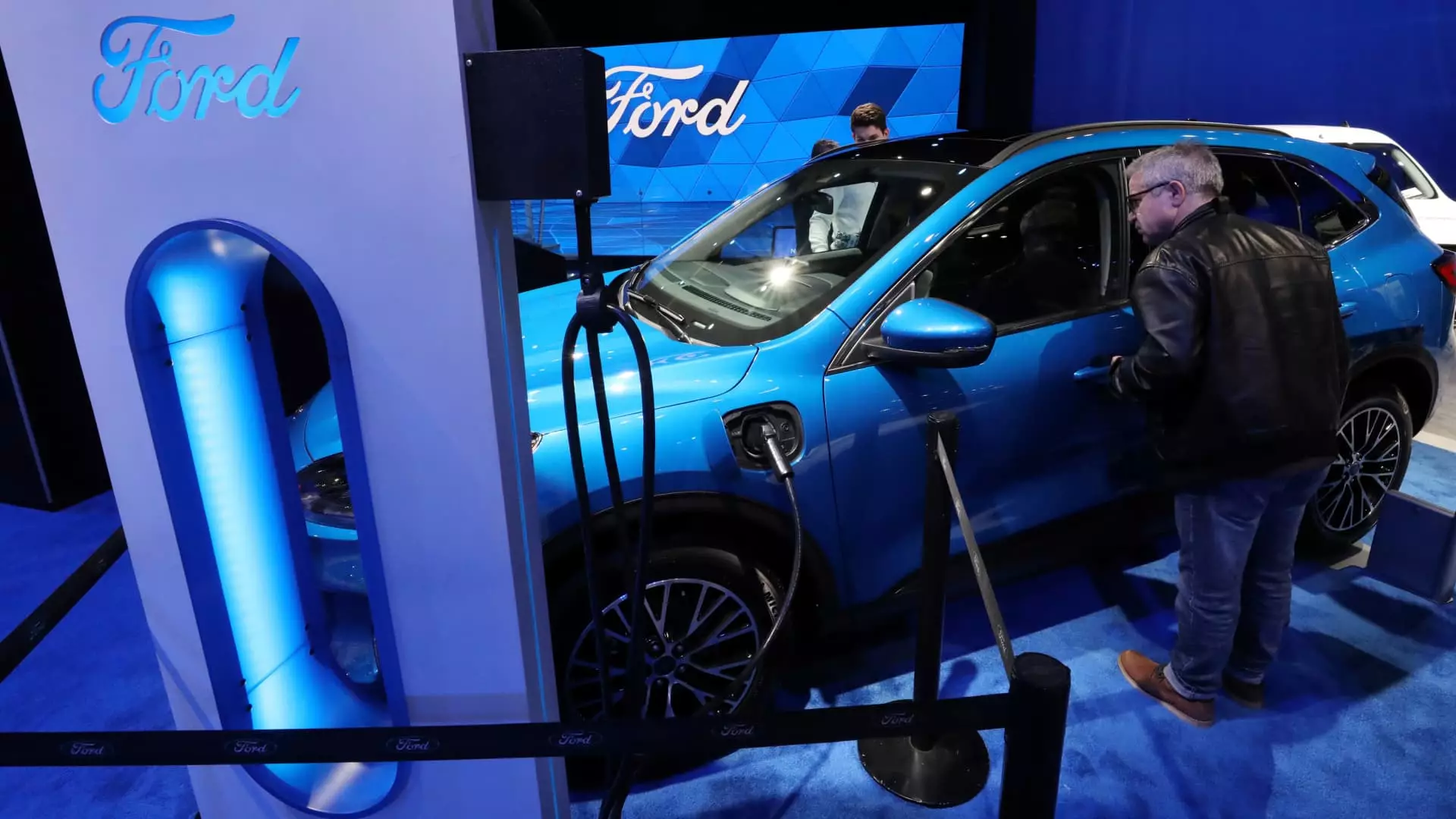Ford Motor has decided to delay the production of a new all-electric large SUV and pickup truck as it transitions to offering hybrid options across its entire North American lineup by 2030. This decision comes as the automotive industry grapples with slower-than-expected adoption of electric vehicles and high production costs. Ford had initially planned to start production of the three-row SUV at a plant in Canada in 2025, but it has now been pushed back to 2027. Similarly, the next-generation pickup truck, codenamed “T3,” has been delayed from late 2025 to 2026.
Despite ranking as the second-best EV brand in the U.S., Ford found itself behind Tesla in overall EV sales during the first quarter of the year. Both Tesla and Hyundai, including Kia and Genesis brands, outsold Ford in the EV segment. Ford CEO Jim Farley emphasized the importance of scaling a profitable EV business, using capital wisely, and bringing the right mix of gas, hybrid, and fully electric vehicles to market at the right time.
The three-row SUV was part of Ford’s $1.3 billion investment to transform its Oakville Assembly Plant in Ontario into an electric vehicle hub. This shift was intended to retool a North American facility that previously produced gas-powered vehicles into one that manufactures EVs. The delay in production will allow for the consumer market for three-row EVs to further develop and enable Ford to take advantage of emerging battery technology.
Ford is shifting its EV efforts towards new plants like the “BlueOval City” campus in Tennessee, rather than converting existing facilities producing gas-powered vehicles to all-electric models. The company plans to introduce breakthrough, next-generation EVs that are fully software-enabled, providing customers with improved digital experiences and a range of potential services. Construction of battery plants in Michigan, Tennessee, and Kentucky is also ongoing to support the production of electric vehicles.
Ford reported an 86% increase in electric vehicle sales in the first quarter of 2024 compared to the previous year. Hybrid sales saw a 42% year-over-year increase, while sales of traditional vehicles with internal combustion engines were up by 2.6%. However, Ford’s “Model E” electric vehicle business incurred significant losses, with $4.7 billion lost in 2023, including $1.57 billion in the fourth quarter. The company expects the unit to face further losses between $5 billion and $5.5 billion in 2024.
Ford’s decision to postpone the production of its all-electric SUV and pickup truck reflects the challenges faced by the automotive industry in transitioning to electric vehicles. Despite setbacks, the company remains committed to building a profitable EV business and integrating a mix of gas, hybrid, and electric vehicles into its lineup. By focusing on emerging battery technologies and investing in new EV production facilities, Ford is positioning itself for long-term success in the evolving automotive landscape.


Leave a Reply